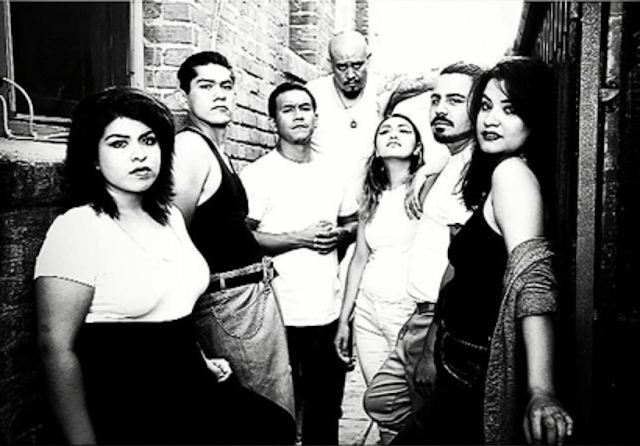
 |
| Always Running (tiachucha.org) |
- In Always Running (study guide and book summary) a young man escapes his life of gang violence, discrimination, depression, and drug addition through art, the Chicano Movement, poetry, and service to others. Author Luis J. Rodriguez says: “My book [is] about the transformative power of the arts as well as how the Chicano Movement provided me meaning and knowledge to join with the social justice struggles of the day. It dramatizes how a caring, persistent, and guiding mentor eventually gave me the consciousness and tools to own my life instead of turning it over constantly to drugs, crime, and violence.”
It is a chronicle of Rodriguez's gang banging in L.A., published in 1993, through the life-and-death dangers he faced and overcame as a stoned cholo involved in crimes and living it up/living la vida loca ("the crazy life"). It's poetic, as the author found his voice in the Los Angeles Public Library, where he ran after being shot one day. It's powerful, vulnerable, honest, passionate, and deadly serious, a real down and out story of city life in these United States. Now it has been made into a play, currently playing at CASA 0101. Tickets
- "Always Running" at CASA 0101
- Extended run: Aug. 31, 2019-Nov. 24, 2019
- Fridays, Saturdays 8:00 PM, Sundays 5:00 PM
- 2102 East First St., Boyle Heights, $20-$45
- (323) 263-7684, casa0101.org
Q&As with local academics and book signings with the author after select Sunday matinee performances including Sept. 22, October 6, 20, Nov. 17 and 24, 2019. There is also a sequel book: It Calls You Back: An Odyssey Through Love, Addiction, Revolutions & Healing available ($16).
TRIGGER WARNING: Scenes of drug use, violence, suicide, sexuality, and addiction are present throughout the performance. No performance on Sept. 27, 28, 29 or Nov. 1, 2, 3.
- The Tarahumara word for themselves, Rarámuri, means "runners on foot" or "those who run fast" in their native language according to some early ethnographers
 |
| Traditional male running dress |
This exhibition presents never-before-seen color and black and white photos of the Tarahumaras taken 42 years ago in the high Sierras of Chihuahua, Mexico. L@s Tarahumaras: Life, Culture and Challenges captures the resilience and serenity of the Tarahumaras.
Oscar Castillo has exhibited throughout the U.S. In 2015 Los Angeles Times writer Steve Saldivar considered Oscar Castillo’s photography “essential in understanding Chicano life and protest in Los Angeles.” His images are part of the Smithsonian American Art Museum collection. Curated by Jimmy Centeno. The Jean Deleage Art Gallery, CASA 0101 Theater. More




No comments:
Post a Comment